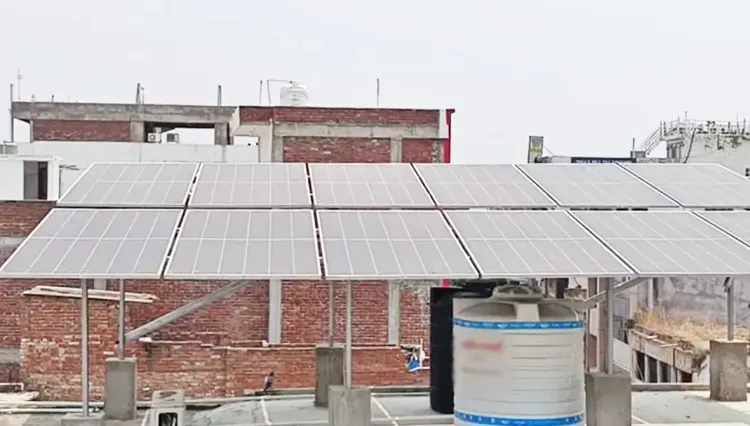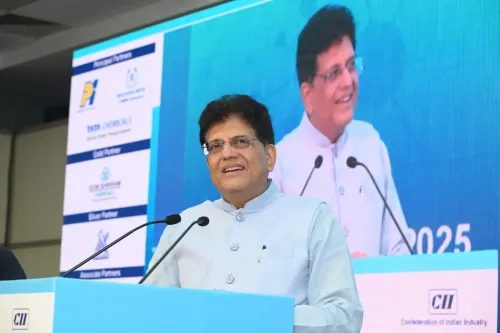Is Solar With Storage More Affordable Than New Thermal Power for Continuous Supply?

Synopsis
Key Takeaways
- Solar energy with storage is cheaper than new thermal power generation.
- Cost of solar with battery storage: Rs 3.9 - Rs 4.3 per kWh.
- Cost of solar with pumped storage: Rs 4.4 - Rs 4.9 per kWh.
- New thermal plants cost Rs 5.4 - Rs 5.8 per kWh.
- Solar tariffs have decreased by over 90% in the last decade.
New Delhi, Oct 15 (NationPress) A recent report indicates that solar energy combined with storage solutions has become more economically viable than building new thermal power stations to meet the continuous demand for electricity. This finding was published by The Energy and Resources Institute (TERI) following an extensive analysis of the peak seasonal demand day for BSES Rajdhani Power Limited (BRPL).
The research evaluated the cost per unit for fulfilling the DISCOM's energy needs through solar power integrated with battery energy storage systems (BESS) and pumped storage plants (PSP), comparing these options with traditional thermal power generation.
According to the findings, the cost of solar energy when paired with BESS ranges from Rs 3.9 to Rs 4.3 per kWh, while the cost for solar combined with PSP falls between Rs 4.4 and Rs 4.9 per kWh. In stark contrast, the expense for new thermal plants is quoted between Rs 5.4 and Rs 5.8 per kWh.
The analysis reveals that solar power with storage is not only less expensive than new thermal generation but also provides a cleaner and more reliable energy supply, as stated in the report.
Experts from the institute noted, "With solar tariffs having decreased by over 90% over the last decade, the next logical step for the nation is to enhance affordable storage options to pave the way for India's 24x7 green energy future."
As of August 2025, India's installed solar capacity stands at 125 GW out of a total of approximately 495 GW, a significant increase from the 61 GW recorded in 2020, which was part of a total installed capacity of 371 GW.
Furthermore, solar tariffs in India have plummeted from Rs 17.91 per kWh in 2010-11 to Rs 1.99 per kWh in 2020, representing a staggering 91% reduction in costs over the decade, as highlighted in the report.
India aims to achieve a target of 500 GW of non-fossil fuel capacity by 2030 and has set a goal to become net zero by 2070.









